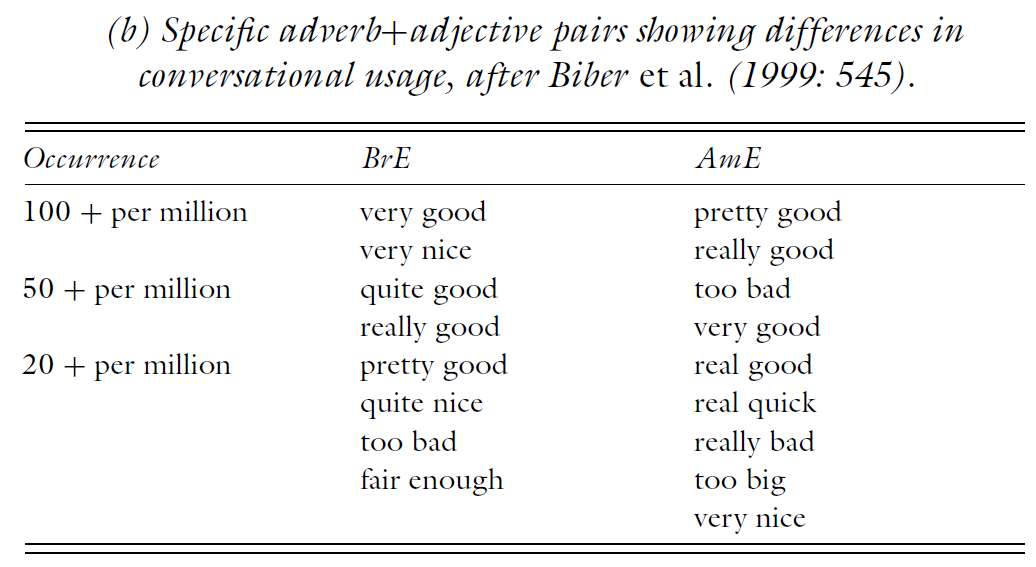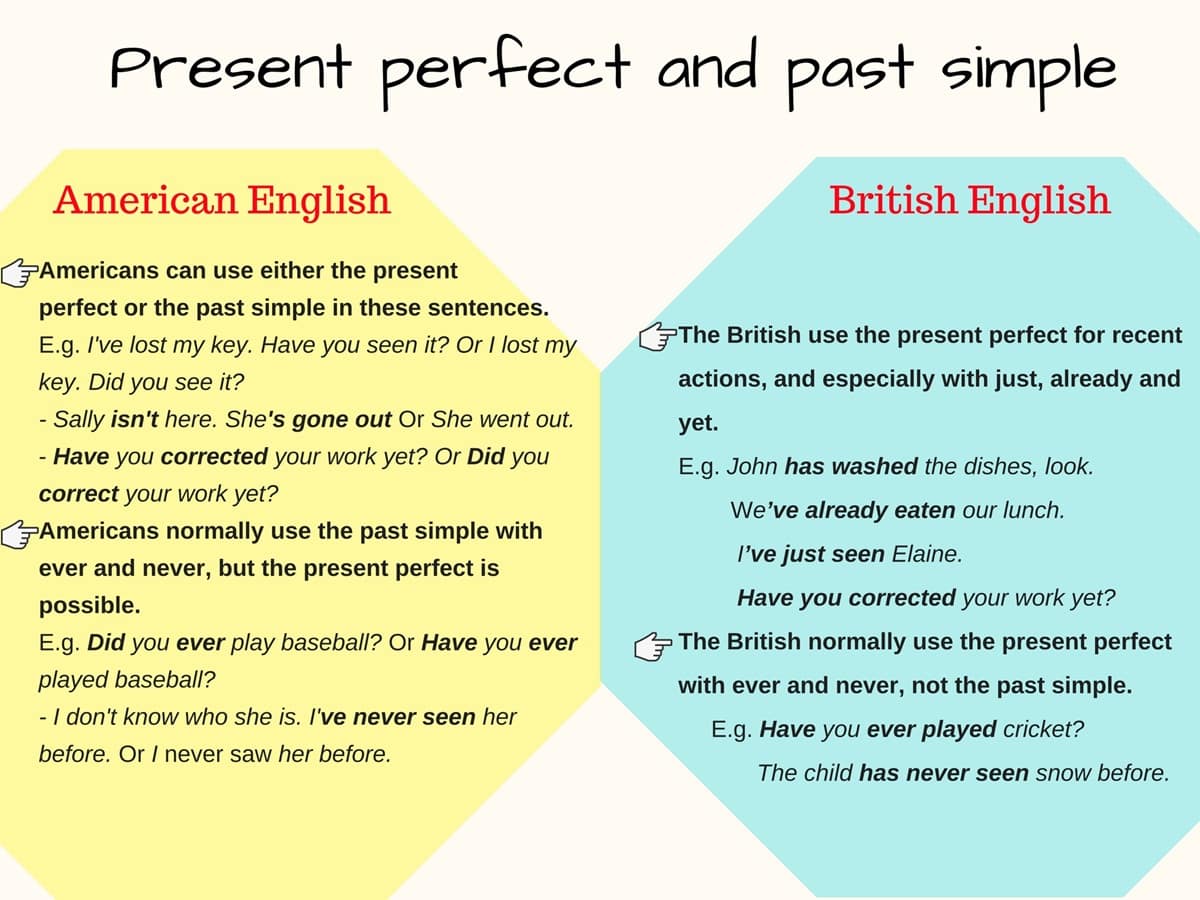
Vocabulary differences
One of the most important differences between American and British English lies on vocabulary. One can tell where someone comes from by the words he/she uses, in the same way that it is possible to identify the different vocabulary people use in the regions of our own country. For examples:
British English American English
anti-clockwise counter-clockwise
barrister attorney
biscuit cookie
boot trunk
However, differences occur also in the case of adverbs and adjectives quite noticeable in the following cases

Grammar differences
In British English, the present perfect tense is used for recent actions that affect the present: 'I've broken your vase. Will you forgive me? In American English, the present perfect can also be used, but the past simple is more commonly used: 'I broke your vase. Will you forgive me?' In addition, there are differences in the use of past participles: Americans use 'got' instead of 'got', 'leaned' instead of 'leant', and 'spoiled' instead of 'spoilt'.

Australian English.
Australian English, spoken in Australia, New Zealand, and surrounding islands, is the primary language for about 72.7% of Australians, with Aboriginal languages spoken by others. It began diverging from British and Irish English after the First Fleet arrived in 1788, evolving from a mix of British and Irish dialects, particularly those from Southeast England. By the 1820s, Australian English had developed distinct phonological, pronunciation, lexical, idiomatic, grammatical, and spelling differences. While generally consistent across Australia, it also includes regional and sociocultural variations.
Vocabulary.
Australian English features numerous vocabulary variations known as Australianisms. For example, an apartment in America or a flat in England is called a "home unit" in Australia. Other Australianisms include:
- Bloke = a man
- Sheila = a woman
- Boofhead = a simple or foolish person
- Dinkum = genuine or true
Shrinking Words.
In Australia, it's common to use diminutives and abbreviations in speech, reflecting inventiveness and informality. This linguistic habit, spanning generations, continues strongly. According to Roly Sussex from the University of Queensland, over 5000 abbreviations exist. Examples include:
- Barbie = barbecue
- Avo = avocado
- Ambo = ambulance
3 Pronunciation.

Australians tend to change the long "a" for "i" for example in the word Yesterday, they would pronounce yesterdie / ˈjestədi /
- They also tend to change the "i" in ride or nice for 'oi" so the words ride, nice , kite will sound , /roid/ , /nois/ /koit/
This way of pronunciation is called Strine accent or Broad Australian English
